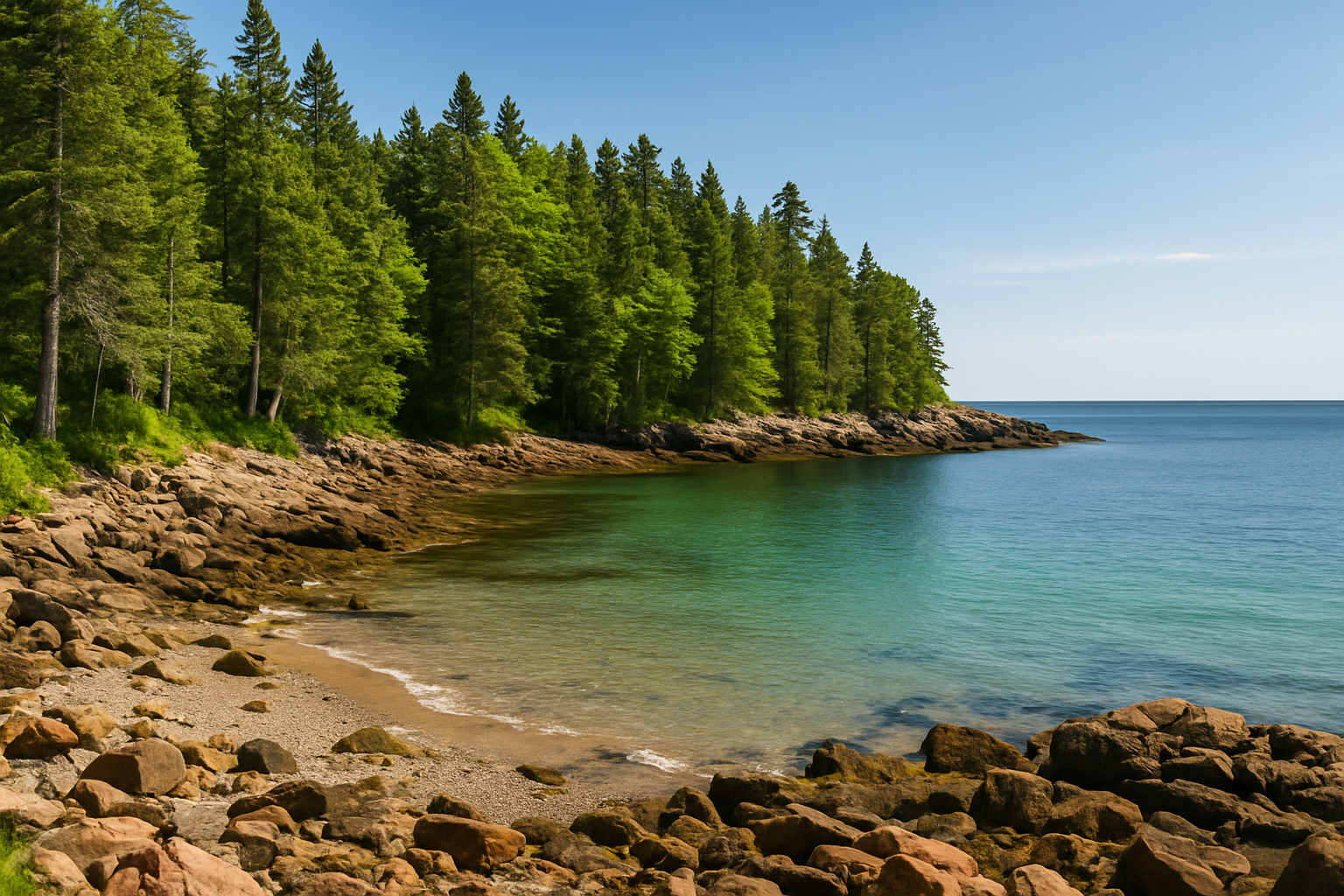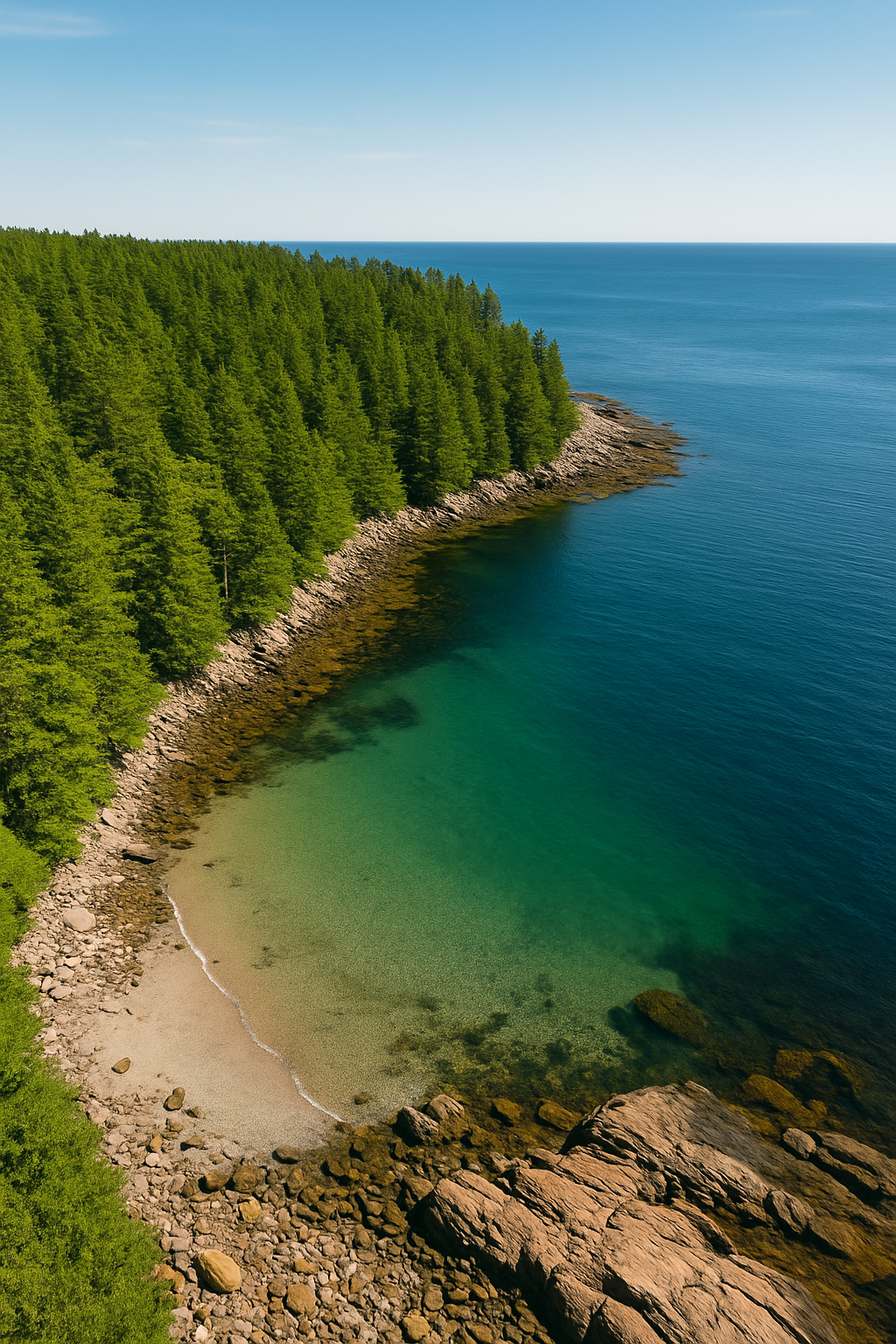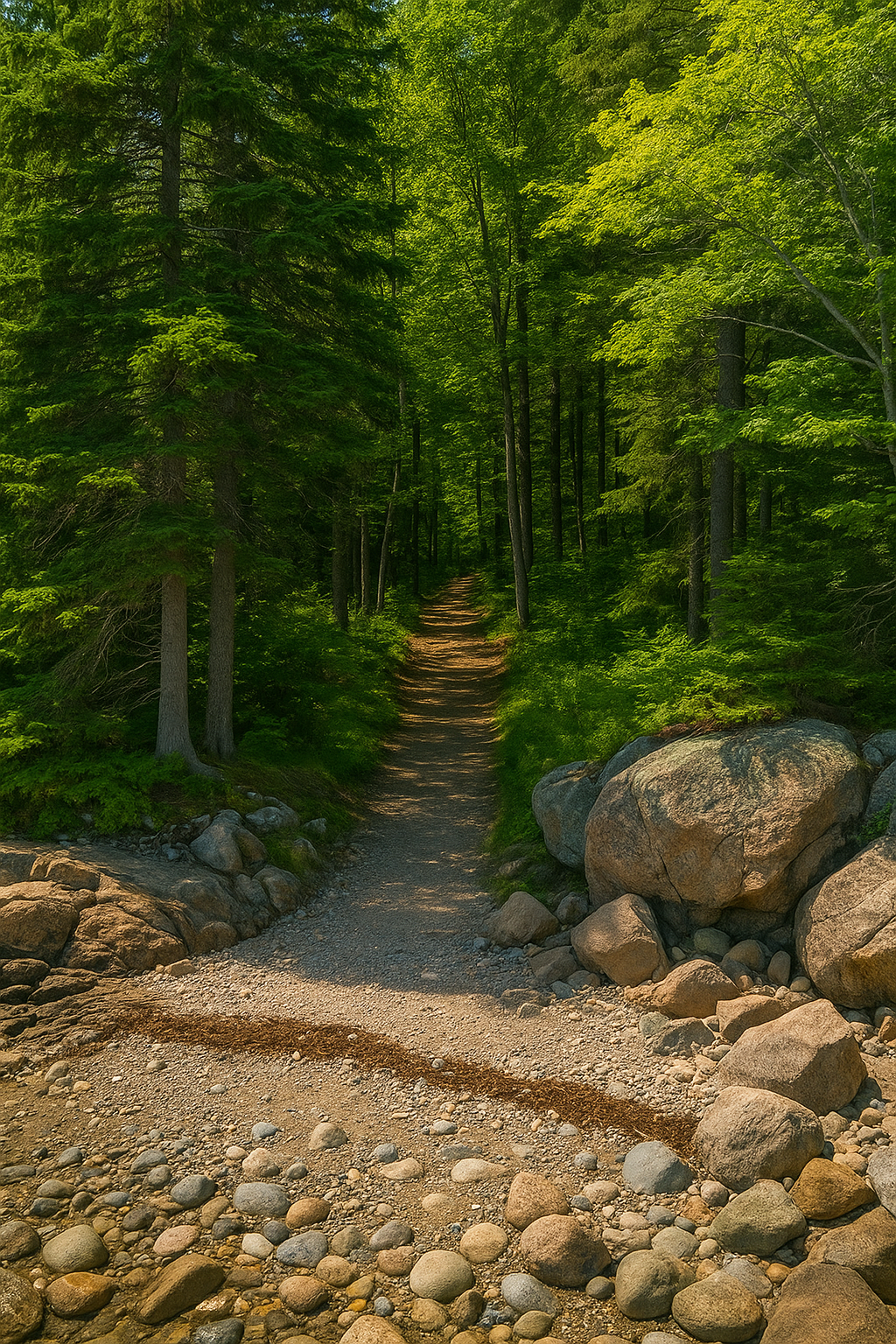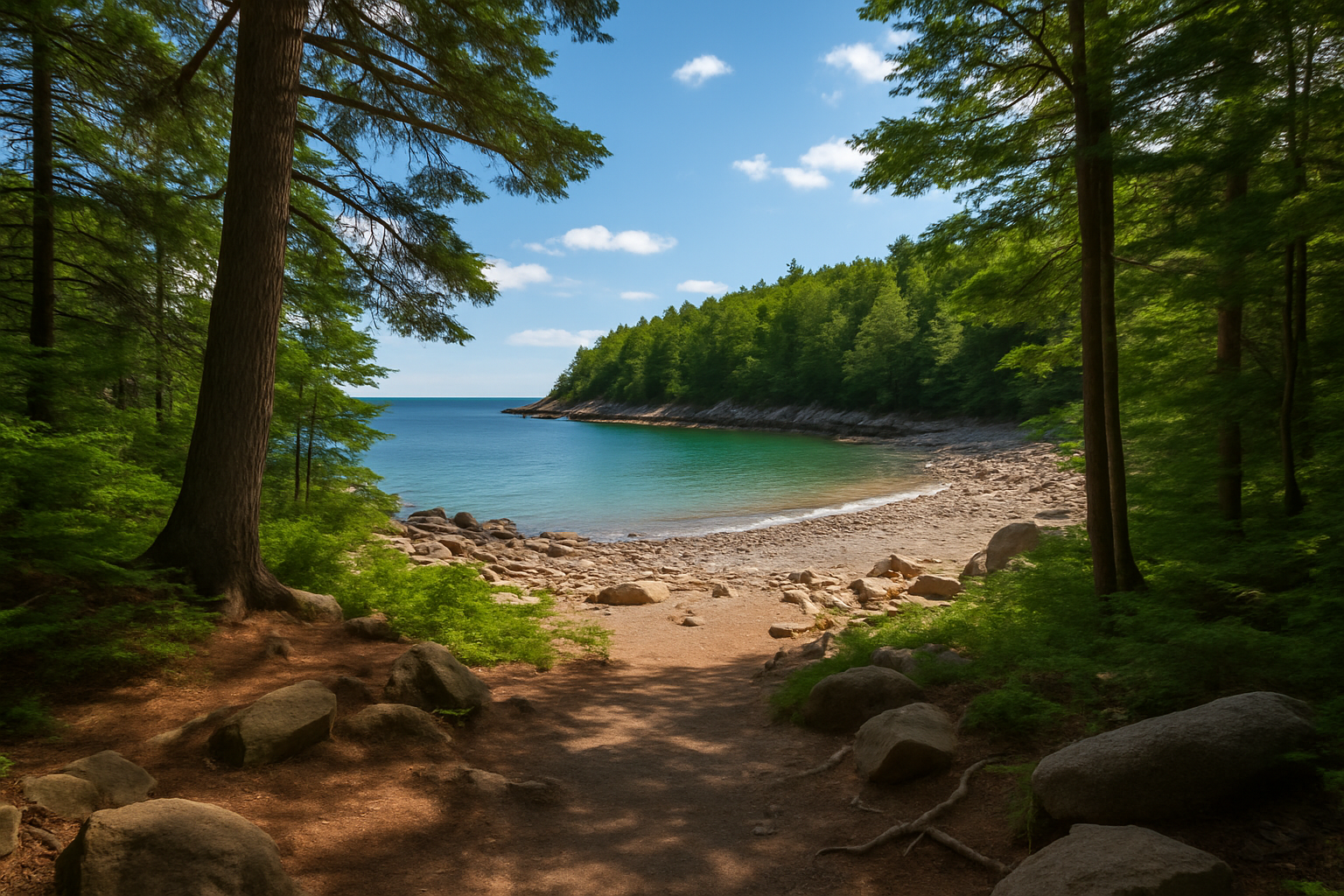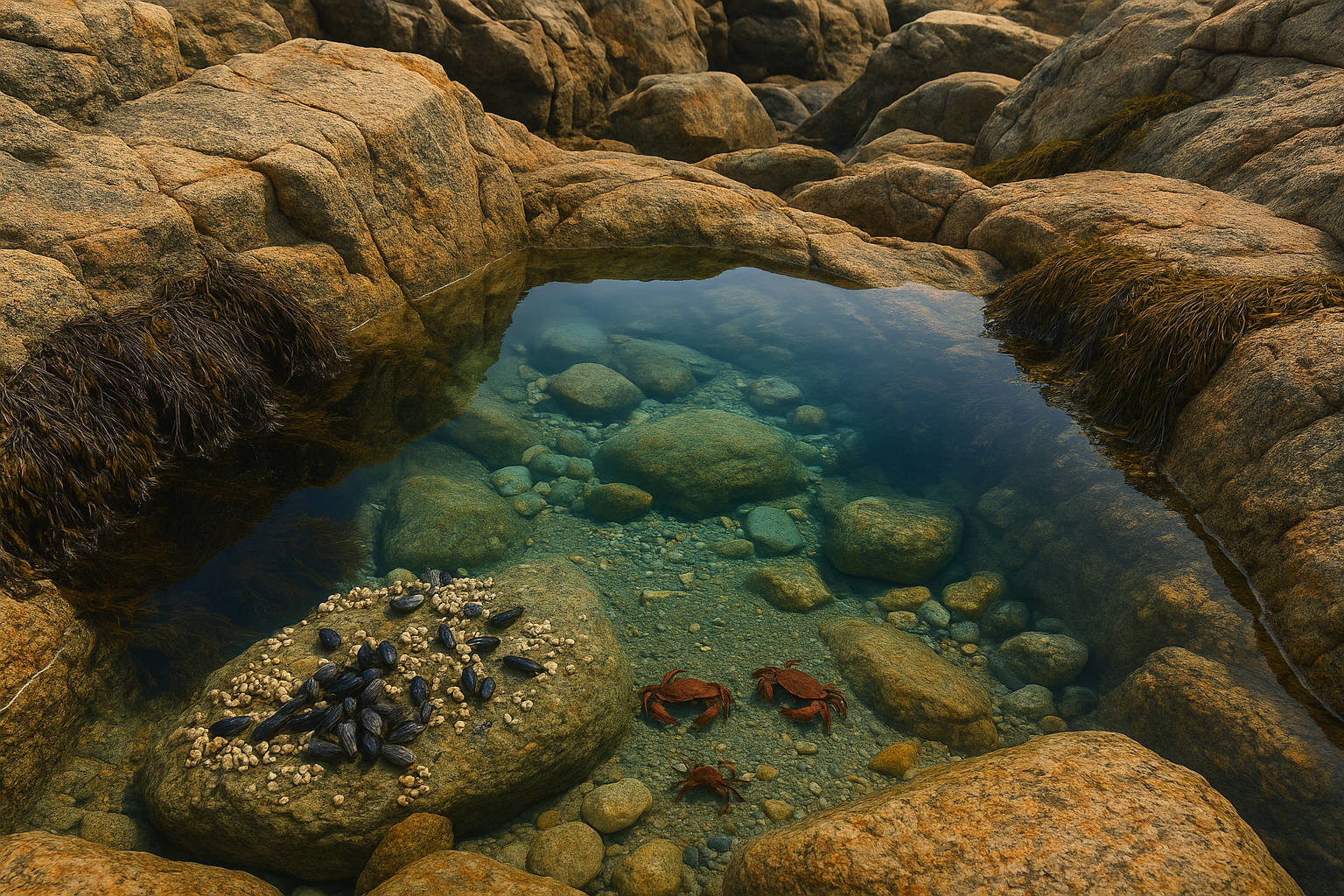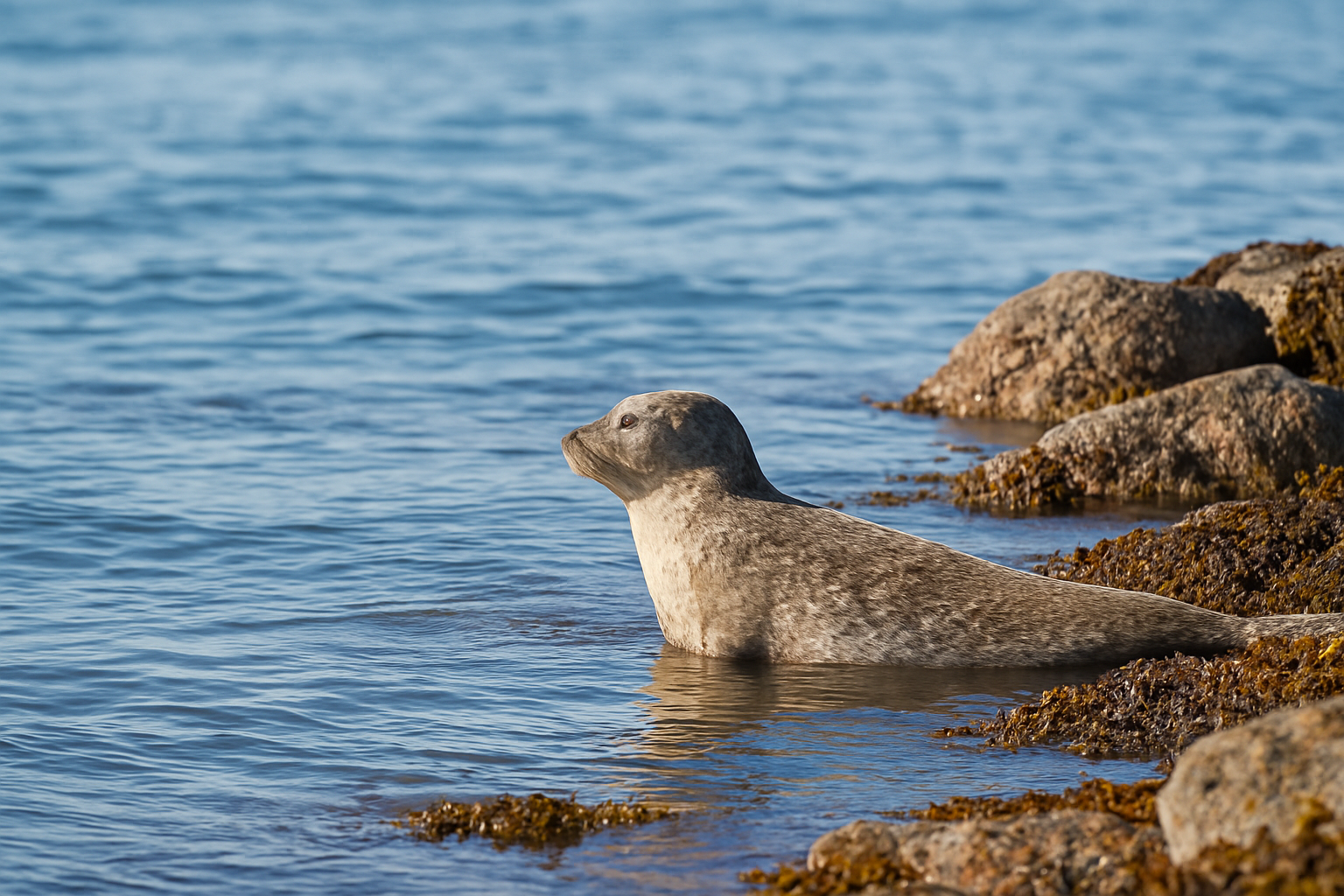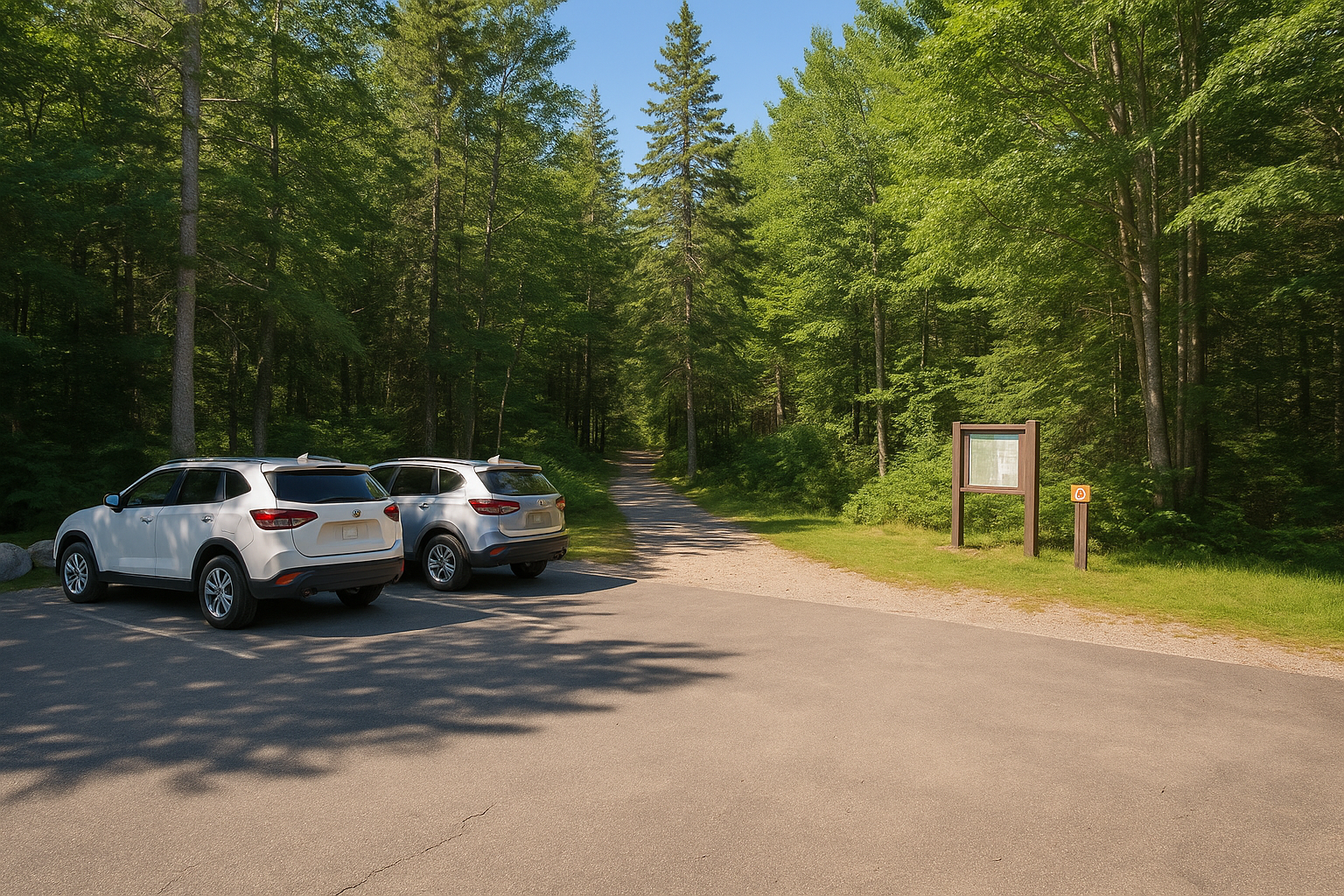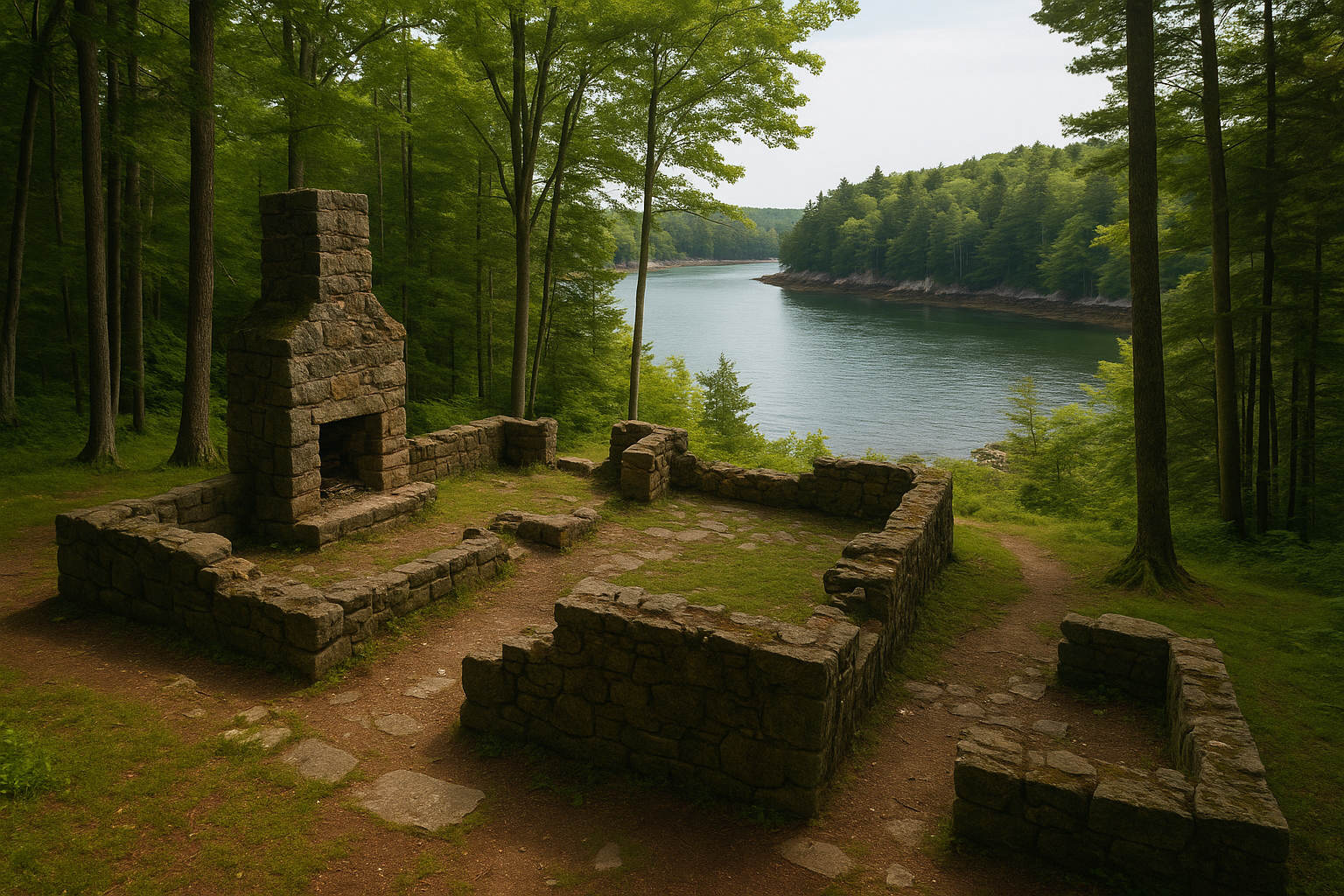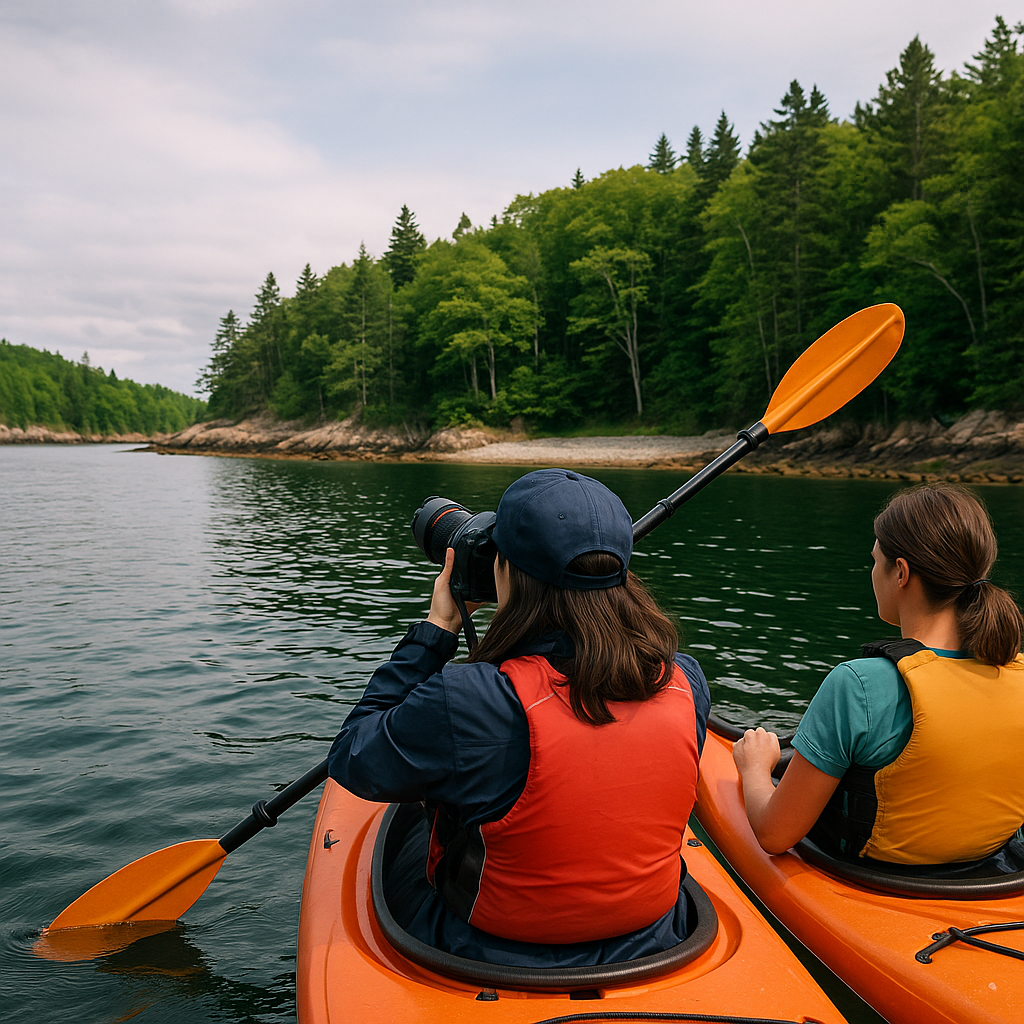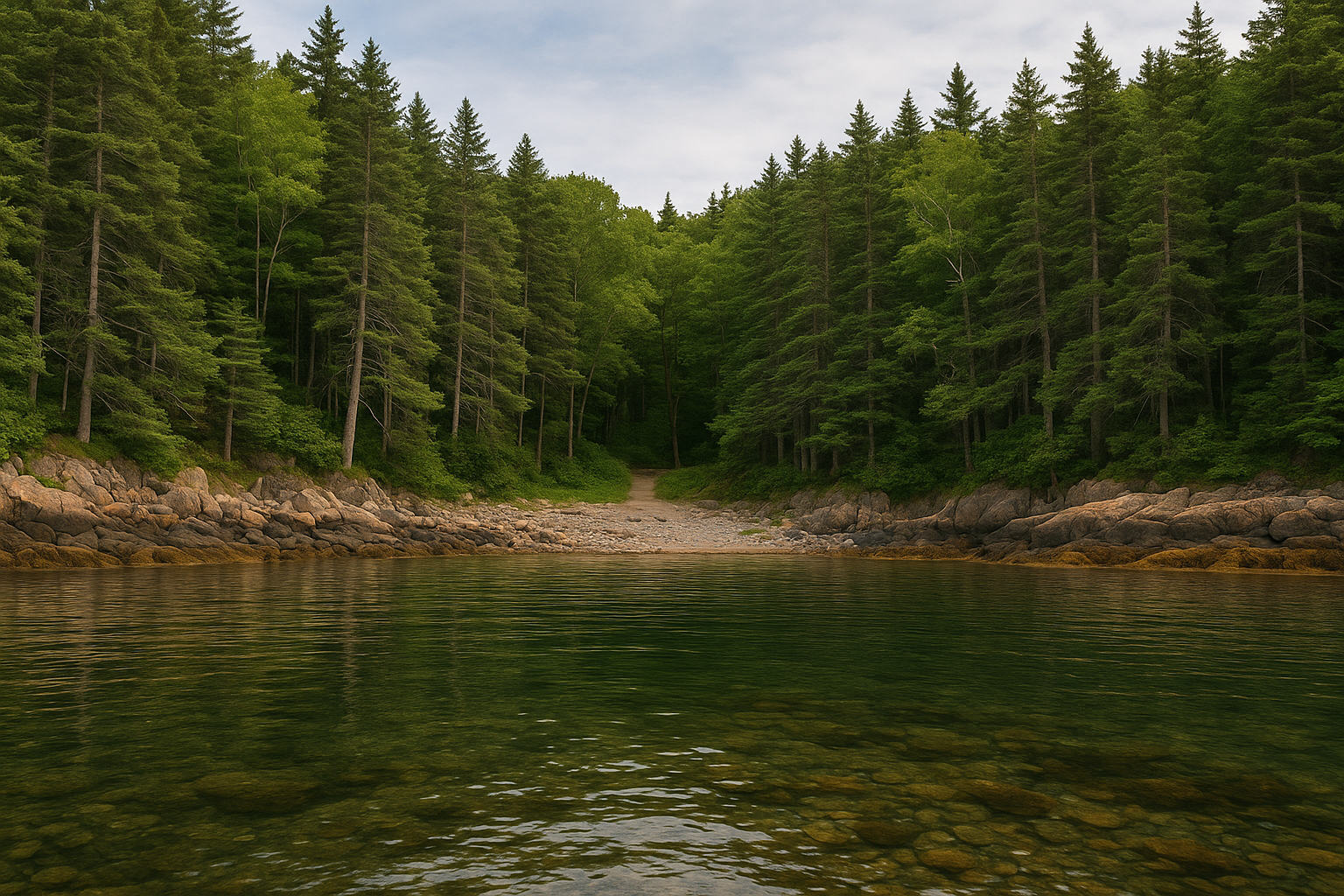Compass Harbor in Acadia National Park
Not every treasure in Acadia National Park makes it onto postcards or guidebook covers. Just south of Bar Harbor, tucked away behind a short forest path, lies Compass Harbor — a sheltered cove that feels far removed from the bustle of the park’s main attractions. This little-known spot offers a quiet refuge where the forest meets the sea, creating a natural escape that locals cherish and many visitors overlook.
The Compass Harbor Trail is a short, easy walk, making it perfect for families, casual hikers, or anyone who wants a peaceful detour close to town. Along the way, you’ll pass through shaded woods alive with birdsong before emerging at the rocky shoreline. Here, the ocean stretches out before you, with calm waters lapping against the stones and views that change beautifully with the light and tide.
What sets Compass Harbor apart is its sense of intimacy. While nearby Sand Beach and Cadillac Mountain draw the crowds, this cove remains a place to slow down, skip stones, watch seabirds, or simply sit and soak in Acadia’s coastal beauty without distraction. On a warm summer day, the turquoise water sparkles against the backdrop of evergreens, while in the cooler months, the solitude makes it feel like your own private corner of the park.
Whether you’re staying in Bar Harbor and looking for a quick escape, or exploring every corner of Acadia, Compass Harbor offers a glimpse of the park’s quieter side — the kind of hidden gem that reminds you that Acadia is not only about its famous views, but also about the smaller, more personal moments along the coast.
A Quiet Cove Near Bar Harbor
Just minutes from the bustle of downtown Bar Harbor lies a place that feels like an entirely different world. Compass Harbor is one of Acadia National Park’s quietest corners — a sheltered cove where time seems to slow down and the rhythm of the ocean takes over. Though close to town, it has the atmosphere of a hidden retreat, shielded by tall evergreens and edged with smooth granite ledges that slope gently into the sea.
The cove itself is small and intimate, framed by forest and open to the wide sweep of Frenchman Bay. The shoreline is rocky rather than sandy, scattered with pebbles, tide-worn stones, and patches of seaweed that glisten in the sunlight. On calm mornings, the water here turns glassy and still, reflecting the blue of the sky and the green of the trees. On windier days, waves roll in softly, their steady sound mingling with seabirds overhead. It is the kind of natural soundtrack that invites visitors to pause, breathe deeply, and simply take it all in.
What makes Compass Harbor special is not its grandeur, but its intimacy. You won’t find towering cliffs or dramatic surf here. Instead, the beauty lies in the details: the play of light on wet rocks, the discovery of tiny shells along the tide line, or the way the late afternoon sun turns the bay a deep shade of turquoise. It’s a place for quiet moments — sitting on a stone ledge to watch the tide, snapping photos of reflections on the water, or simply closing your eyes and listening to the ocean’s gentle rhythm.
For many, Compass Harbor becomes a personal favorite because it offers what the busier parts of Acadia cannot: space to slow down and connect with nature on a more personal level. It’s a reminder that the park’s treasures aren’t always about scale or spectacle. Sometimes the most memorable experiences come from the quieter corners — the places where you can feel, even for a little while, like the cove belongs only to you.
The Compass Harbor Trail
The trail to Compass Harbor may be short, but it feels wonderfully rewarding. From the moment you step onto the path, you’re surrounded by the calming presence of the forest. Tall evergreens and hardwoods form a leafy canopy overhead, offering cool shade during summer and brilliant splashes of color in autumn. In spring, the undergrowth comes alive with fresh green, while in winter, the bare trees create striking views through to Frenchman Bay.
As you make your way along the trail, the natural soundtrack takes over. Birds dart from branch to branch, calling through the trees, while the steady crunch of gravel beneath your feet sets a gentle pace. The air is filled with the earthy scent of pine and sea salt drifting inland, reminding you that the shoreline is never far away. Each bend in the trail feels like a quiet transition, carrying you further from the bustle of Bar Harbor and closer to Acadia’s quieter side.
Because the trail is so short — less than half a mile round trip — it’s accessible to nearly everyone. Families with small children, couples on an evening stroll, or solo visitors with just a few minutes to spare can all enjoy this walk without effort. Early in the morning, you’ll often see locals out for a peaceful start to the day, while evenings bring soft golden light filtering through the trees and glowing across the bay. The gentle grade makes the return trip just as easy, allowing you to linger at the shoreline without worrying about a strenuous hike back.
What makes the Compass Harbor Trail special is its combination of simplicity and reward. In only a few minutes, you’re transported from roadside parking into a world of birdsong, forest calm, and coastal views. It’s not about distance or difficulty — it’s about accessibility and the experience of reaching the shoreline. For many visitors, this short stroll becomes one of the most memorable parts of their Acadia trip, precisely because it’s so easy yet so beautiful.
What Makes Compass Harbor Special
While Compass Harbor doesn’t have the fame of Sand Beach or the swimming opportunities of Echo Lake, it offers something altogether different — a blend of seclusion, accessibility, and natural charm that makes it stand out as one of Acadia’s hidden treasures.
- Seclusion: Even in the height of summer, when Bar Harbor and Acadia’s most famous landmarks are buzzing with activity, Compass Harbor remains a relatively quiet escape. The cove is often dotted with only a handful of visitors, giving you space to breathe, reflect, and enjoy the scenery at your own pace. For many, this sense of privacy is what makes the visit truly memorable.
- Accessibility: Compass Harbor is one of the easiest park spots to reach. Just a quick drive from downtown Bar Harbor, the parking area leads directly to a trail that takes less than ten minutes to walk. There are no steep climbs or long distances to manage, which makes it an ideal choice for families, casual walkers, or travelers short on time who still want to experience Acadia’s coastline.
- Variety: Despite its small size, Compass Harbor packs in an impressive mix of natural features. At low tide, tidepools appear among the rocks, revealing tiny crabs, mussels, and barnacles clinging to ledges. The rocky shoreline offers plenty of nooks for exploring, while the surrounding forest provides shade and a quiet transition from town life to coastal calm. It’s a compact microcosm of what makes Acadia so special.
- Atmosphere: More than anything, Compass Harbor is about mood. There’s a calm, reflective quality to the cove — the way the waves lap against the stones, the play of light across Frenchman Bay, and the steady presence of evergreens along the shore. It’s not dramatic, but it’s deeply peaceful, and that’s its greatest gift.
For travelers who want a pause from crowded overlooks, mountain summits, and busy beaches, Compass Harbor feels like a personal retreat — a corner of Acadia where you can slow down, listen to the ocean, and appreciate the quieter side of the park.
Highlights at a Glance
- 🌲 Seclusion — Fewer crowds, even in peak season.
- 🚶 Accessibility — Less than half a mile round trip, minutes from Bar Harbor.
- 🌊 Variety — Tidepools, rocky ledges, and forest path in one compact spot.
- 🌅 Atmosphere — Quiet, reflective cove on Frenchman Bay.
Photography and Scenery
Photographers are often drawn to Compass Harbor because it offers such a well-balanced composition in a small, easily accessible setting. The cove itself provides a natural foreground of rounded stones and rocky ledges, while Frenchman Bay stretches outward to the horizon, giving depth and scale to every shot. The framing of evergreen forest along the edges adds contrast and texture, making the scene feel complete through the lens.
The lighting here changes the mood dramatically. At sunrise, golden light filters through the trees, catching the edges of rocks and rippling across the water in soft highlights. Early morning is especially rewarding when the surface of the bay is calm, creating mirror-like reflections. By contrast, on overcast days, the same cove transforms into something moodier — gray seas blending with darker pines, a palette that feels both dramatic and serene. For many photographers, this shifting character is what keeps Compass Harbor fresh and inspiring.
Beyond the wide views, Compass Harbor offers plenty of close-up opportunities. Tidepools reveal barnacles, mussels, and tiny crabs; wave-washed stones glisten with seawater and create natural patterns; and hardy coastal plants add pops of color against the granite. These details invite macro shots and creative framing, giving photographers a chance to capture Acadia’s smaller, more intimate wonders.
One of the greatest advantages here is the lack of crowds compared to Acadia’s busier locations. With fewer people moving through the scene, it’s easier to set up a tripod, wait for the perfect light, or simply take your time experimenting with angles. Whether you’re an experienced landscape photographer or just traveling with a camera in hand, Compass Harbor rewards patience and creativity with images that feel personal and unique.
Wildlife at the Shoreline
Compass Harbor may feel quiet at first glance, but look and listen closely and you’ll realize it’s alive with subtle signs of nature. Above the cove, gulls wheel overhead, their calls echoing across Frenchman Bay as they drift on shifting sea breezes. On calm mornings, the water sometimes shimmers with the presence of eider ducks, gliding in pairs or small groups. Every so often they disappear beneath the surface with a splash, diving for mussels clinging to the rocks below. Along the shaded approach trail, the forest hums with life as songbirds flit from branch to branch, adding bright movement and cheerful calls to the otherwise hushed walk through the woods. In spring, the chorus is at its liveliest, while autumn brings the soft rustle of leaves beneath their wings.
Closer to the water, the shoreline opens into a world of intricate detail. The rocky coast and scattered tidepools create miniature habitats teeming with life for those willing to linger. Patient observers can find tiny crabs scuttling sideways across the stones, clusters of periwinkle snails clinging to damp seaweed, and, if you’re lucky, a sea star nestled in the shallows, its arms stretching across the sand and pebbles. The scene changes constantly with the ocean’s rhythm — each new tide rearranges these pockets of life, making every visit to Compass Harbor a little different from the last.
And then, sometimes, Compass Harbor offers its most unforgettable gift. If you sit quietly on the rocks and let the world settle, you may catch sight of a harbor seal surfacing just offshore. Its sleek head rises above the water, whiskers glistening as it surveys the bay with curious, dark eyes before slipping silently beneath the surface again. These encounters are fleeting but powerful — a reminder that even in this peaceful, sheltered cove, Acadia’s wild side is never far away. They are the moments that transform Compass Harbor from a quiet resting place into something more — a living connection to the larger rhythms of the Atlantic and the wildlife that calls it home.
🌊 Did You Know?
- Dorr’s legacy: Compass Harbor was once home to George B. Dorr, known as the “Father of Acadia National Park.” The remains of his estate, Oldfarm, can still be found along the trail.
- Steps from town: Despite being less than a mile from downtown Bar Harbor, Compass Harbor remains one of the park’s quietest and most overlooked spots.
- Short but scenic: The trail is under half a mile round trip, yet it passes through shaded woods and opens onto a rocky cove with sweeping views of Frenchman Bay.
- Tidepool life: At low tide, visitors can find barnacles, mussels, and small crabs in the tidepools that dot the rocky shoreline.
- Personal retreat: Unlike Acadia’s famous beaches and mountains, Compass Harbor offers a more intimate, reflective experience — a favorite for locals seeking peace and solitude.
Tips for Visiting Compass Harbor
- Parking: A small parking lot is located right off Route 3, just south of downtown Bar Harbor. With only a handful of spaces available, it can fill quickly during summer afternoons, so arriving earlier or later in the day gives you a better chance of finding a spot.
- Trail Length: The Compass Harbor Trail is about 0.25 miles one way (roughly half a mile round trip). The path is flat, shaded, and easy to follow, making it suitable for nearly all visitors — families with children, couples on a casual stroll, or anyone looking for a short walk with a big reward.
- Best Time to Visit: The experience shifts depending on when you go. At low tide, the rocky shoreline reveals tidepools filled with crabs, snails, and barnacles — perfect for exploring. In the evening, the cove takes on a calm, reflective atmosphere, with soft golden light over Frenchman Bay making it an ideal spot for sunset photos.
- What to Bring: Even though it’s a short walk, it’s best to come prepared. Sturdy shoes are recommended for walking across rocks near the shoreline. Bring a bottle of water for the trail, insect repellent during warmer months, and of course, a camera to capture the quiet beauty of the cove.
- Duration: Most visitors spend 30–60 minutes here — enough time for the short walk, exploring the shoreline, and sitting quietly to soak in the scenery. If you’re lucky, you might even spot a harbor seal offshore.
Because Compass Harbor is so close to town, it’s easy to work into almost any itinerary. Stop in for a quick stroll before dinner in Bar Harbor, or make it your very first outing after arriving on Mount Desert Island. Either way, it’s a gentle introduction to the quieter side of Acadia.
Oldfarm Ruins Above the Cove
Just beyond the shoreline, visitors will come across stone steps and old foundations tucked away beneath the trees. These are the remains of Oldfarm, once the grand summer home of George B. Dorr — the man remembered as the Father of Acadia National Park. In its day, Oldfarm was a sprawling estate with wide porches and sweeping views of Frenchman Bay. Today, only fragments remain, but standing among the moss-covered stones gives a sense of the past and the passion that helped create the park.
Though the house itself is long gone, the ruins add a fascinating layer of history to Compass Harbor and make the short walk even more rewarding. It’s a quiet reminder that Acadia is not only about wild beauty, but also about the people who worked tirelessly to protect it. If you’d like to learn more about Dorr and the story of his estate, be sure to see our full guide to the Compass Harbor House.
Why You Shouldn’t Skip It
Compass Harbor may not be one of the headline attractions of Acadia National Park, but that’s exactly why it’s so special. In a park where Cadillac Mountain, Sand Beach, and Jordan Pond draw thousands of visitors daily, Compass Harbor offers something different: a chance to breathe, slow down, and connect with the quieter side of Acadia.
Its appeal lies in the balance it strikes. The access is easy — just a short drive from downtown Bar Harbor and a gentle quarter-mile trail to the cove — yet the reward feels much larger than the effort. Within minutes, you leave behind the sound of traffic and find yourself surrounded by forest, waves, and seabirds. It’s the kind of place where families can enjoy a simple outing together, couples can share a quiet moment, and solo visitors can sit in peace with the ocean.
Compass Harbor also offers a variety of experiences in one compact setting. The shaded trail through evergreens and hardwoods gives way to tidepools alive with tiny creatures, a rocky shoreline for exploring, and wide views of Frenchman Bay. For photographers, the shifting light creates endless moods, from golden sunrises to dramatic, moody afternoons. For history lovers, the nearby ruins of Oldfarm, George B. Dorr’s former mansion, add an unexpected human story to the natural setting. And for wildlife watchers, the chance of spotting a seal offshore or eider ducks in the bay makes every visit unique.
Above all, Compass Harbor is a reminder that not every treasure needs to be grand to be unforgettable. Its charm lies in its intimacy, its quiet beauty, and its ability to make you feel as though you’ve stumbled upon a secret corner of the park. For anyone who wants to step away from the crowds and experience Acadia on a more personal level, Compass Harbor is truly worth the visit.
Ready to Explore More?
If Compass Harbor sparks your interest, take a closer look at the history that still lingers just above the shoreline. Our full guide to the Compass Harbor House explores the ruins of George B. Dorr’s Oldfarm Estate — once a grand summer home overlooking the cove, now a quiet reminder of the man often called the Father of Acadia National Park.
Or, if you’re planning to see more of the park’s coastline, head over to our complete guide to Acadia National Park beaches, where you can discover the iconic surf of Sand Beach, the calm waters of Echo Lake Beach, the rugged solitude of Seawall, and other coastal favorites that reveal the park’s incredible variety.
- NPS: Compass Harbor Trail — Official National Park Service page with directions, trail details, and site history.
- AcadiaMagic: Compass Harbor — Local guide with photos, walking info, and the story of George B. Dorr’s Oldfarm estate.
